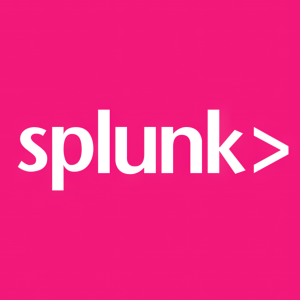Splunk Advances Future of Observability with OpenTelemetry Donations
Splunk Inc. (NASDAQ: SPLK) has reinforced its commitment to data democratization as the top contributor to OpenTelemetry, announcing a significant donation of the extended Berkeley packet filter (eBPF) collector. This initiative aims to enhance observability data collection for modern applications. The eBPF collector improves network visibility, minimizing detection times of infrastructure issues and boosting team productivity. Splunk's support for OpenTelemetry allows organizations greater flexibility in data collection, fostering digital transformation and enhancing business performance.
- Donation of eBPF collector enhances network visibility and observability data collection.
- Improves organizational productivity by reducing mean-time-to-detection of network issues.
- Splunk is the No. 1 contributor to OpenTelemetry with over 64,000 contributions.
- None.
Insights
Analyzing...
Splunk Furthers Commitment Towards Data Democratization as No. 1 Contributor to OpenTelemetry with Significant Donations Including New eBPF Collector
A lack of sufficient network visibility across organizations can impact cloud applications and distributed microservices, cause connectivity issues in cloud providers, lead to outages in managed services and more. Splunk’s donation of the eBPF Collector to OpenTelemetry creates an accurate, complete model of service dependencies and service health by tracking network connections from every container transparently. This in turn allows organizations to measure the impact of infrastructure and cloud network problems on distributed services within seconds, significantly decreasing mean-time-to-detection and improving team productivity.
“At a time where digital experiences are more important than ever, OpenTelemetry is extremely powerful in working to accelerate the implementation of observability and deliver results with cloud applications, many of which directly impact business performance,” said
The eBPF Collector generates high-fidelity network telemetry that recognizes all service-to-service interactions, without sampling or service changes. It uses extended
Splunk Fosters Open Source Ecosystem with Continued Commitments
Splunk is committed to the value of open source and has partnered with numerous vendors to extend the vision of OpenTelemetry in the industry. Google Cloud recently announced that they donated Sqlcommenter to OpenTelemetry, allowing application-focused database observability with open standards and Splunk and other partners were key contributors in shaping the standard. Sqlcommenter simplifies the process of correlating slow queries with source code and provides insights into backend database performance. The merging of Sqlcommenter to OpenTelemetry also means that Splunk observability customers can further empower developers with application-centric database monitoring, improving visibility into the performance of applications and end user experiences.
“We believe that a healthy observability ecosystem serves our customers and partners well and this is reflected in our continued commitment to open-source initiatives,” said
As a founding member and the No. 1 contributor to the OpenTelemetry project, Splunk has provided over 64,000 contributions to OpenTelemetry. Splunk has optimized and designed its observability portfolio to consume and manage OpenTelemetry data at scale, offering customers optimal flexibility in collecting data for visibility into their infrastructures, applications and users.
Splunk is also a Gold member of the
For more information on OpenTelemetry and Splunk’s observability portfolio, visit the Splunk website.
About
Splunk, Splunk>, Data-to-Everything, D2E and Turn Data Into Doing are trademarks and registered trademarks of
View source version on businesswire.com: https://www.businesswire.com/news/home/20211011005068/en/
Media Contact
press@splunk.com
Investor Contact
ir@splunk.com
Source:







